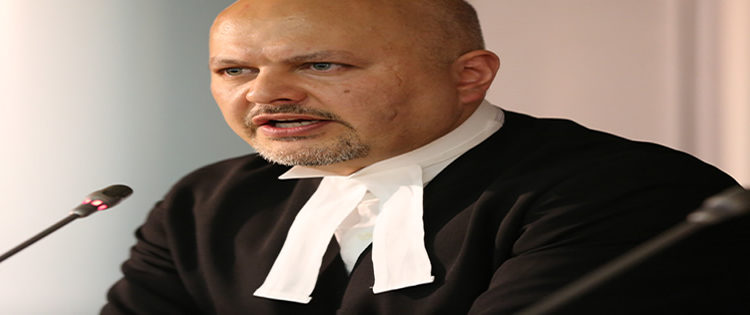Saif-ul-Islam, the son of former Libyan strongman Muammar Gadaffi, has picked two lawyers who represented Deputy President William Ruto as his advocates at the International Criminal Court.
Lawyers Karim Khan and Dato Shyamala Alagendra will be part of Saif-ul-Islam’s team of four lawyers he has selected to represent him. The other two are Khaled Zaydi of Libya and Maître Marcel Ceccaldi of Paris. Khan, a British barrister and Alagendra, a Malaysian advocate, were first hired by former Head of Kenya’s Public Service, Francis Muthaura, to defend his crimes against humanity case at the ICC in 2011. After the prosecution withdrew charges against Muthaura following the withdrawal of witnesses, Khan and Alagendra were hired by Ruto, who was jointly charged with journalist Joshua arap Sang. On April 5, 2016, ICC judges terminated the Ruto-Sang case over what the presiding judge characterised as a “troubling incidence of witness interference and political meddling”.
Saif, who is being held by rebels in the northern part of Libya in spite of an ICC warrant of arrest, was previously represented by court-appointed lawyers. The ICC issued warrants in 2011 for Gaddafi, his son and his spy chief, citing evidence of crimes against humanity committed against political opponents.
The case remains in the Pre-Trial stage, pending Saif’s transfer to the The Hague. The Pre-Trial Chamber found that there were reasonable grounds to believe that Saif was his father’s unspoken successor and the most influential person within his inner circle and, as such, he exercised control over crucial parts of the State apparatus, including finances and logistics and had the powers of a de facto Prime Minister.
Gaddafi, in coordination with his inner circle, including Saif, allegedly conceived a plan to deter and quell, by all means, the civilian demonstrations against the regime, and that both of them made an essential contribution to implement that plan.
Following the events in Tunisia and Egypt in the early months of 2011, a State policy was designed at the highest level of the Libyan State machinery and aimed at deterring and quelling, by any means, including by the use of lethal force, the demonstrations of civilians against the regime of Muammar Gaddafi which started in February 2011, court papers claim.
Meanwhile, the Office of the Prosecutor has lamented lack of sufficient resources to investigate war crimes in Libya. During a private meeting in May with Friends of ICC in New York, Chief Prosecutor, Fatou Bensouda said until the issue of resources is solved, her office would not be able to advance the investigations as rapidly as desired.
The Prosecutor has been investigating the situation in Libya over the past six months although there has been little progress because of instability and the current security situation.
Bensouda said her office was assessing the potential to expand its investigations into new crimes committed by the new government.
Saif’s new advocates plan to speak at a press conference on Monday in The Hague.







